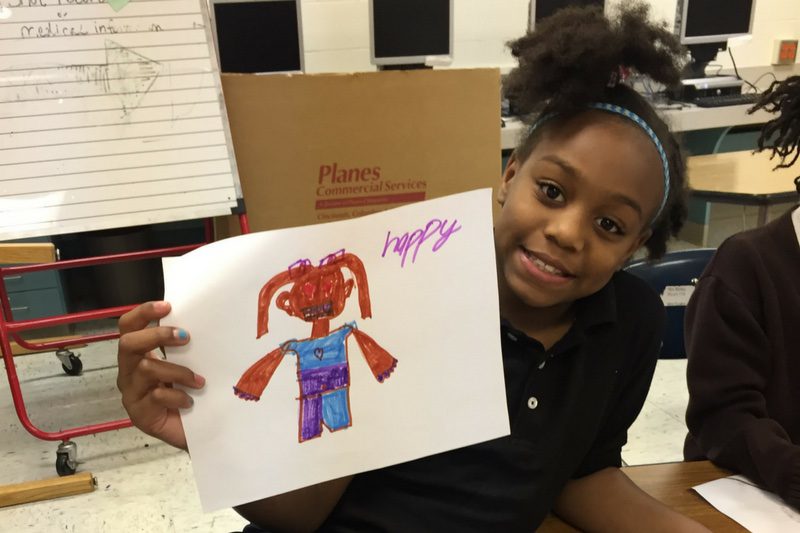HOPE has expanded to reach students from Pre-K through twelfth grades to educate and reduce the stigma surrounding mental health awareness. Read about the variety of ways the program encourages dialogue about mental health.
Hope is the desire for something to happen or change. The Joseph Maley Foundation HOPE program was created to change the way individuals talk about and advocate for their mental health. The full program name – Health through Outreach, Personal Perspectives and Engagement—captures JMF’s approach to engaging individuals in valuable discussions and activities surrounding the topic of mental health.
In 2015, several members of JMF’s Junior Board of Directors approached Vivian Maley and Jen Money-Brady after losing classmates to suicide. They related not only the difficulty in navigating this loss, but also the challenge of engaging others in discussions about mental health and stigma. JMF initially created HOPE programming specifically for high school students. However, a meeting with professionals from Riley Hospital for Children’s Triple Board revealed an urgent need for mental health awareness programming for children as young as three.
To meet this need, HOPE Director Jen Money-Brady quickly set to work to expand and incorporate standard-based lessons for Pre-K through eighth-grade students, and further develop the high school components of the HOPE curriculum. As she notes, “Just two years later, we have a strong presence in seven elementary, middle, and high schools with lessons for children as young as three all the way through college.”
HOPE is tailored to meet the specific needs of each school community. The program provides engaging activities, literacy components relative to each grade level, as well as discussion opportunities. Students may also participate in service-learning projects and hear from speakers who offer personal perspectives about mental illnesses and physical health. For example, Riley Children’s Health physician, Dr. Katie Soe, was a guest speaker for the HOPE program at St. Richards Episcopal School in September. Dr. Soe spoke about the importance of healthy eating, sleep, and exercise. Students and parents learned that their physical health directly affects their mental wellness.
In implementing HOPE in these school communities, one cannot help but notice the connection to JMF’s message of acceptance for all. Students who participate in the program are equipped with tools to advocate for their own and their peers’ mental health. By reducing the stigma surrounding the topic of mental health, Jen Money-Brady notes, “HOPE encourages conversations and learning in a positive and engaging way that allows children and adults to develop their own strategies for a healthy perspective of their mental, social, emotional and physical health.”
If you would like more information about HOPE or to bring this program to your school or organization, please email Jen Money-Brady at jen@josephmaley.org.
Post written by:
Courtney Basso
Events and Communications Director
